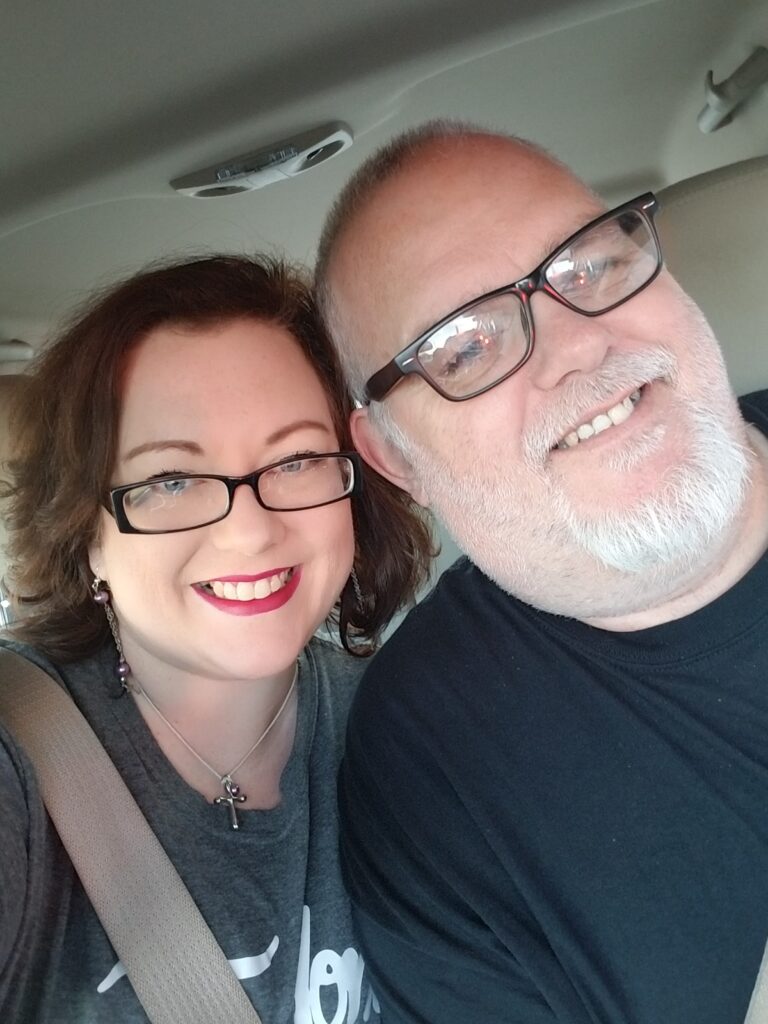Longtime Survivor Urges Patients to Accept Help

Amy Cox and her husband Brent.
Tennessee native Amy Cox, 40, is a four-time survivor of stromal sarcoma cancer, a rare gynecologic cancer in which a tumor starts growing in the supporting connective tissue (stroma) of the lining of the uterus (the endometrium). “My whole adult life I have battled this horrible beast,” Amy said. “I want to tell my story to encourage other women. To help them learn how to deal with it, and help their caregivers learn how to care for them and help grieve with them.”
Amy was first diagnosed with stromal sarcoma in 1999 when she was 20 years old.
“The tumor was in my uterus. It grew into my fallopian tubes and began turning gangrenous,” she explained. “The tumor was removed in July and in September I had a radical hysterectomy. The tumor was the size of an 8-week old fetus, if I had been pregnant.”
Since that time Amy has experienced recurrences in 2007, 2016 and 2018, and has had multiple surgeries. She credits her family and faith for getting her through her most difficult recurrence in 2016-2017, when she had more than 12 inches of her sigmoid colon removed while undergoing treatment at Vanderbilt University Medical Center.
“I got to the point where I couldn’t walk. I was going every month for CT scans to check that tumor. I lost my hair,” Amy recalled. “I had to have my dad, husband and brother build a ramp onto the house. Our church donated a wheelchair. My legs were just weak. It just hurt. One morning I woke up and I couldn’t walk.”
Over the years Amy has learned to “let my pride down.” She remembered a moment during her second recurrence of cancer in which her mother wanted to buy her something from the hospital gift shop and Amy initially refused, until she received this advice, “Anytime someone wants to buy something or do something for you, let them do it–otherwise you are taking away their blessing.”
“Now I’ve learned to let people do and not say no—and I’ve never forgotten that,” she said. “Watching my family building up that ramp—I couldn’t say no. I knew I needed it.”
Amy has also found outlets through making jewelry and working as a substitute teacher for children in grades pre-K through 12. “They bring such positivity and joy,” she said. “I love to watch them grow up.”
Looking back on the past 20 years of her life, Amy has an important message for the caregivers in the lives of anyone who has received a cancer diagnosis. “If the patient starts to cry and get angry don’t try to understand their emotions or their feelings,” she advised. “Sometimes you need to sit down and hold them and let them cry. There were plenty of times my husband Brent sat on the bed with me and let me cry. This is about what we want and what we need. You have to remember to be there for the patient.”
The Foundation for Women’s Cancer (FWC) has tips for caregivers intended to help family, friends and loved ones tackle the challenges of caring for someone with cancer.
